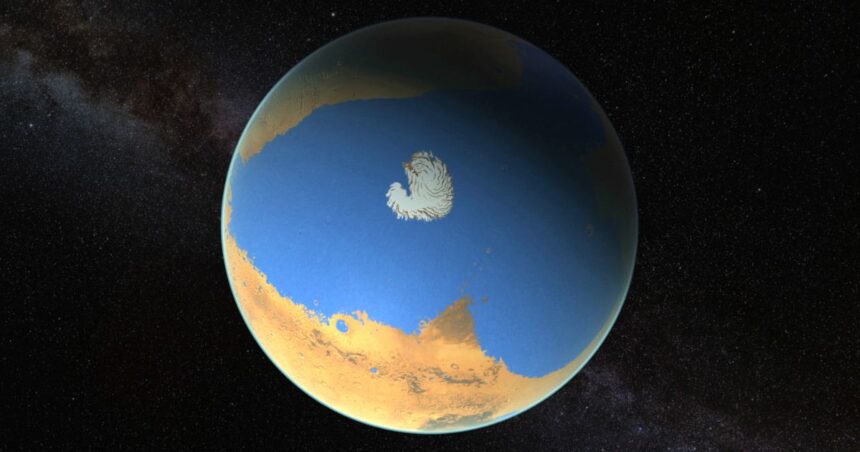Once upon a time, Mars was like our planet Earth; it had plenty of water, but later, all vanished. Mars lost water has puzzled many scientists for many centuries. According to new research, it seems that we are very close to solving this puzzle.
NASA’s Hubble Space Telescope and Mars Atmosphere and Volatile EvolutioN (MAVEN) mission have provided new data to answer our questions. The evidence so far suggests that Mars was once like our Earth. Present-day evidence indicates that Mars had very early lakes, rivers, and very large oceans.
But the present Mars is a very different planet; it does not have the same water as before, and it is rusty and has lost its global magnetic field. The question of where the water on Mars has gone is constantly in the minds of scientists, and so far, there is no answer. But now we have new data, and we might get the answer. According to a recent study, the answer we get is that the water on Mars has escaped into space.
The Role of Hydrogen and Deuterium
As we know, water is made from hydrogen and oxygen. On Mars, water molecules can break into hydrogen and oxygen atoms. These atoms can then escape into space. Scientists have focused on two types of hydrogen. First is Hydrogen (H), and second is Deuterium (D). Hydrogen is lighter than Deuterium.
When the water molecule breaks, both the hydrogen and the deuterium are separated; the lighter hydrogen atoms escape more easily than the heavier deuterium atoms. This deuterium to hydrogen ratio has increased greatly in the atmosphere of Mars due to many years of processes. By studying this ratio, scientists estimate how much Mars water has lost so far.
New Findings from Hubble and MAVEN
Combined data from both NASA’s Hubble telescope and MAVEN show the rates of escape of hydrogen and deuterium in detail, and they are not constant but rather variable. John Clarke leads this research from Boston University. They note that when Mars moves too close to the sun, its rates change greatly. After this discovery, it challenged previous theories, which suggested that hydrogen and deuterium escaped at a constant rate.

Knowing these new escape rates allows us to estimate the total water loss on Mars. John Clarke explains that if we want to know if there was water on Mars, we need to study how much water has escaped from Mars.
These findings show that we still have a lot to learn about Mars history. It suggests that there was a time when Mars had a lot of water. The higher escape rates show that Mars lost much water over its lifetime. This research also helps explain the current state of Mars atmosphere. Water loss has likely played a major role in shaping the planet’s climate and surface conditions.
Even if the water on the Martian surface has escaped into space, there may be a huge amount of water inside the Martian surface. In 2018, scientists also found evidence that there is a lot of water below the subsurface of Mars in the southern polar region. This discovery has sparked interest in the search for subsurface water on Mars.
There are future missions that aim to explore these underground reservoirs, such as the European Space Agency’s ExoMars rover.
Editor’s Recommendations
- Andromeda Galaxy’s Rosy Glow, Hubble’s Stunning New Image Revealed
- Latest Findings of JWST Reveals the Secrets of Star Birth at ‘Cosmic Noon’
- Asteroid Bennu Older Than the Sun and a Carrier of Life’s Building Blocks and Water on Earth
- NASA’s Europa Clipper Spacecraft Prepares for Historic Launch, A New Chapter in the Search for Extraterrestrial Life




